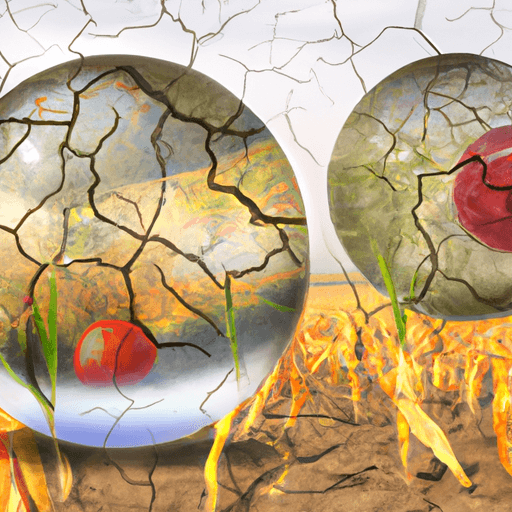The Influence of Climate Change on Global Food Ingredients
This comprehensive study explores the pervasive impact of climate change on farming practices across the globe, and the subsequent repercussions on the production of essential food ingredients. It particularly highlights the implications of food security and how both economic and societal factors are at stake.
Impact on Agricultural Practices
Global warming and unfavorable climate changes have profound detrimental effects on agriculture, the primary source of our food. Increasing temperatures, unstable weather patterns, and altered rainfall distribution are among the key climatic changes adversely affecting plant health, crop productivity, and the fundamental stability of our food production systems.
Effects on Food Ingredients
These drastic changes in farming processes further trickle down to the production of primary food ingredients. For instance, increasing heatwaves diminish grain yields, while heavier and more sporadic rainfalls undermine crop quality and result in increased post-harvest losses.
Significance of Food Security
Unpredictability in food production disrupts food security, an essential aspect ensuring the availability, accessibility, and utilization of food for everyone. Climate change exacerbates challenges to food security, especially impacting vulnerable communities that heavily depend on farming as their primary source of income and food.
Global Consequences
The global repercussions of climate change on food ingredients are myriad. Economically, it could lead to more volatile food prices and increased risk of food-related conflicts and migration. Socially, it intensifies inequality, as the burden of climatic changes is disproportionately borne by poor and marginalized communities.
Strategies and Solutions
Despite the bleak picture, remedial strategies have emerged. These include climate-smart agricultural practices like crop diversification, conservation agriculture, and agroforestry. However, more needs to be accomplished. We must invest more in sustainable agricultural practices, restore degraded lands, optimize use of water resources, and above all, improve social systems to support vulnerable farming communities.
Review of Existing Research
Several research studies have been conducted on this topic, signifying its importance. Data presented by the Intergovernmental Panel on Climate Change (IPCC) and FAO highlights the urgency to address food security amid a changing climate. They advocate for policy formulation that considers the climate-agriculture-food security nexus to address these challenges comprehensively.
In conclusion, the interplay between climate change, agriculture, and food ingredients calls for urgent, concerted, and comprehensive efforts. As guardians of the planet, we are responsible for its well-being and that of future generations.

















Comments
Leave a Comment